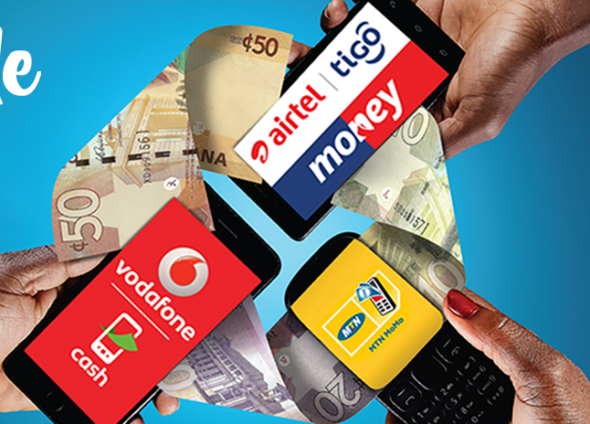The Institute of Economic Affairs (IEA) Ghana has said that the decision of government to remove the daily GH₵100 threshold on the electronic transactions levy (e-levy) is inappropriate.
This, according to them, is because it 'fails' to protect the poor in the current economic crisis.
Reacting to the announcement of a downward review of the e-levy rate from 1.5 per cent to 1.0 per cent in the 2023 Budget, the IEA said government could attain the revenue target and boost usage of electronic transactions if it reviewed the rate further downward to 0.5 per cent
“We are not only disappointed that the new rate is higher than the 0.5 per cent we proposed, but also the removal of the GH₵100 daily exemption threshold, which is inappropriate,” said Mr John Kwakye, Director of Research, IEA Ghana, at a press briefing in Accra.
The Institute noted that though it is generally against the introduction of new consumption taxes, which were not progressive, it said it welcomed the increase of the basic Value Added Tax (VAT) rate by 2.5 per cent.
Dr Kwakye explained that the increase in the basic VAT rate while putting Ghana at comparable levels with its peers in the West Africa Sub-region, would yield the needed revenue for government as it is easier to collect and administer.
“It is our expectation that as the economic situation normalises and government revenue improves, the VAT increase can be scaled back accordingly,” he said.
He encouraged government to consider more innovative tax measures in the form of corporate taxes rather than consumer taxes to ensure government meets its revenue projections of GH₵144 billion for the year 2023.
They include the introduction of e-commerce levy to tax online transactions and corporate tax reform that will see the increase of base tax rate for non-extractive foreign companies from 25 per cent to 45 per cent; an increase base tax rate from 25 per cent to 35 per cent for the indigenous companies and an increase in base tax rate from 35 per cent to 45 per cent for extractive companies with a special tax of 20 per cent.
The IEA also proposed a super-profit tax of 10 per cent and an increase in base tax rate from 25 per cent to 45 per cent for telcos while a tax base rate increased from 25 per cent to 45 per cent with a super-profit tax of 10 per cent for the Banks.
“We call for the reduction and abolishing of some of the several taxes/levies in the petroleum build up to relieve pump prices, which are extremely high,” Dr Kwakye said.
Latest Stories
-
100 Most Reputable Africans: John Mahama, Samuel Okudjeto Ablakwa, Rosa Duncan-Williams make 2025 list
16 seconds -
How 2 Mandela Fellows are fighting period poverty through social entrepreneurship initiatives
5 minutes -
Parliament swears in three disputed NPP MPs despite court case by NDC
21 minutes -
Inauguration of the 9th parliament and election of speaker (photos)
22 minutes -
All set for John & Jane’s historic Swearing-in
37 minutes -
Powerful Tibet earthquake, near Nepal, kills at least 53
2 hours -
Over 2,000 refugees, migrants die reaching Europe in 2024, says UN
2 hours -
Giuliani held in contempt of court in $148m defamation case
2 hours -
Mahama set to be sworn in for second term after landslide victory
2 hours -
The biggest regret of the NPP is going to be this:
3 hours -
Driver survives gunshots by highway robbers on Dambai-Asukawkaw road
4 hours -
Son arrested for allegedly killing mother with pestle after history of threats
4 hours -
Why Apple is offering rare iPhone discounts in China
5 hours -
Bawumia bids farewell, thanks Ghanaians for 8 years of support
5 hours -
NDC names Bernard Ahiafor as First Deputy Speaker; Asiamah returns as Second Deputy
5 hours

